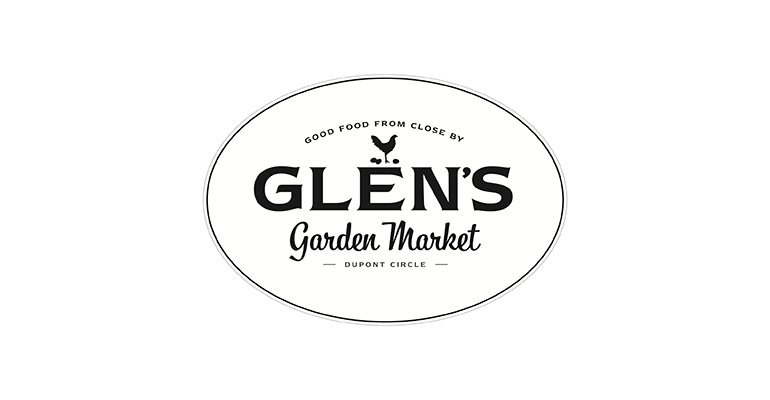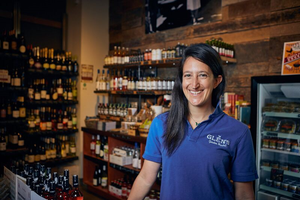Here, Glen's Garden Market founder–and former Capitol Hill employee–Danielle Vogel explains how like-minded retailers can make progress in the realm of sustainability even while facing opposition from Congress.
November 20, 2019

In anticipation of the 2020 National Co+op Grocers Climate Collaborative Awards, the Climate Collaborative is talking with the leaders of the 2019 award-winning companies to learn a little bit more about what drives their climate leadership.
Climate Collaborative: Congratulations on winning a 2019 NCG CC Award! What are you most proud of, when it comes to your company’s climate work?
 Danielle Vogel: I founded Glen’s Garden Market on Earth Day of 2013, specifically to make climate change progress. I had been working on Capitol Hill for a decade to pass comprehensive climate legislation, and when it became clear that the prognosis for large-scale progress was poor, I decided to take control of the pace of progress I was making by channeling the power of my community to make change one bite at a time. Every decision we’ve made for the business since has been made with climate front of mind.
Danielle Vogel: I founded Glen’s Garden Market on Earth Day of 2013, specifically to make climate change progress. I had been working on Capitol Hill for a decade to pass comprehensive climate legislation, and when it became clear that the prognosis for large-scale progress was poor, I decided to take control of the pace of progress I was making by channeling the power of my community to make change one bite at a time. Every decision we’ve made for the business since has been made with climate front of mind.
We’re 100% solar powered through renewable energy credits, we don’t offer paper or plastic bags–only reusables; we operate under a no-food-waste mandate, repurposing or composting everything that comes off of our shelves; we responsibly waste stream, and invite the community to compost with us, for free; we chose LED lights and low-flow toilettes; and nearly everything we sell was grown or produced in the states of our watershed, to reduce transportation and refrigeration emissions.
But the thing we are most proud of is the fact that we’ve launched 89 sustainability-minded small businesses in just under seven years, giving them their very first chance to sell their products on our shelves. Of those companies, fifty-five were founded by women and twenty-three are owned by people of color. We’re cultivating a community of like-minded producers to displace demand for industrially produced food.
What were the key factors to success in getting you where you are today on climate?
Since day one, our commitment to our climate mission has never wavered. That said, we’re not perfect. At Glen’s, we believe that every decision we make–and empower our neighbors to make–is impactful, especially over time. We’re constantly looking for ways to maximize our change agency, whether through our power purchase agreements (PPA), better waste stream management, improved supply purchasing decisions, enhanced sourcing and accountability protocols or new programs to promote low-carbon eating and transportation.
We started this journey because I had lost faith in Congress to look beyond political horizons and put the future of humanity ahead of re-election concerns, but every bit of progress we’ve made since has been the result of a dedicated and collaborative team, looking to improve constantly.
What are the challenges? Do you see a way for companies to work together on overcoming some of them across the industry?
The primary challenge is overcoming the inertia of old habits to activate on the most pressing threat facing humanity as a species: climate change. But the good news is, we don’t have to be perfect to be progressive. Every decision counts, and they really add up over time. Those of us who have done the hard work of identifying the easy fixes have to be willing to share them with those who are just joining our movement. We have to pull each other up this daunting mountain, or we’ll all go down together. So: collaborate, iterate, and collaborate some more.
How do you keep climate action as a company priority, and keep your goals ambitious? What does that look like internally?
At Glen’s Garden Market climate change isn’t a company priority–it’s the priority. It’s the foundation of our Mission and Values, which ensures it remains front of mind at all times. We recite our values together before every service. We hire folks, with whom our mission resonates, and we seek to improve constantly. The best advice: listen, learn and lead.
Looking forward with your own climate work—and the opportunity for industry action on climate— what are you most excited about?
The hope and promise of a new administration.
What’s your advice for others in the industry looking to tackle climate change in their operations?
Take it one bite at a time. Ask for help, and make sure you have your team behind you, so the changes stick. If you need to build momentum, start with the things that are easy and free: put vegetarian options at the top of your menus to encourage their selection, replace burned-out bulbs with more energy efficient alternatives, engage local producers in your events and demo schedules, and research local incentives for low-carbon commuters. Then you can move on to the slightly more expensive stuff: but a bike rack in your break room ($60), consider a reusable bag incentive program (we offer $.05 cents if you bring your own bag, which “costs” us less than $75/month). This stuff doesn’t have to be huge or expensive to be impactful. Start small and build mindfully.

About the Author(s)
You May Also Like




